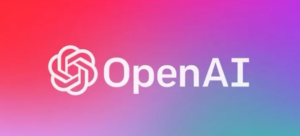
For years now there has been a prediction about how AI is going to take over recruiting. So far there have been some tools that have helped recruiters be more efficient and better, but most of the tools out there so far have not lived up to the hype.
In comes, Open AI’s Chat GPT-3 which I know is not going to replace any recruiters at the moment, but it’s the best AI tool that has been released to the public…
ChatGPT, as a language model, can potentially improve recruiting and talent sourcing in several ways:
Resume screening: ChatGPT can be trained on resumes to assist in the screening process by identifying keywords, qualifications, and experience that match the job requirements. This can help recruiters to quickly identify the most qualified candidates.
Writing job descriptions: ChatGPT can be used to generate clear and compelling job descriptions based on the job requirements and the company’s culture, which can attract more diverse and qualified candidates.
Email and other communications: ChatGPT can be used to generate personalized and professional email and other communications with candidates, such as interview confirmation, rejection and offer letters. This can improve the candidate experience and increase engagement with the company.
Interview Assistance: ChatGPT can be used to generate interview questions based on the job requirements and the candidate’s resume, helping recruiters to conduct more effective interviews.
Improving communication with candidates: ChatGPT can be used to create a chatbot that can interact with candidates, answering questions and providing information about the company and job openings. This can improve the candidate experience and increase engagement with the company.
It’s important to note that ChatGPT is a language model, and it will output based on the input it has been trained on. Therefore it’s important to train it on diverse and inclusive data and set up the parameters accordingly. Additionally, it’s important to have human oversight and review the output generated by ChatGPT, to ensure that it aligns with the company’s recruitment policies and diversity and inclusion goals.
Could Chat GPT replace recruiters some day?
Recruiting is a complex process that involves many different tasks such as sourcing, assessing, and hiring candidates, as well as building relationships with potential candidates. These tasks require human skills such as communication, negotiation, and emotional intelligence.
Additionally, the recruitment process is also subject to legal and ethical considerations, which require human oversight and decision-making. ChatGPT can assist with these tasks, but it cannot replace the human aspect of recruiting, which involves the ability to understand, empathize, and connect with candidates.
Moreover, it’s important to note that ChatGPT is a language model and it will output based on the input it has been trained on, it can also reflect bias and stereotypes if the data it has been trained on is not diverse and inclusive. Therefore, it is important to have human oversight and review the output generated by ChatGPT to ensure that it aligns with the company’s recruitment policies and diversity and inclusion goals.
In conclusion, while ChatGPT can assist recruiters with certain tasks, it is unlikely that it will replace recruiters completely. Recruiting is a complex process that requires human skills and oversight.
Future prediction of recruiters with this type of tool?
Increased use of technology: As technology continues to advance, recruiters will use more automation and AI tools to streamline recruiting processes, such as resume screening and scheduling interviews. This will free up recruiters’ time to focus on more strategic and value-added tasks such as building relationships with candidates and developing recruitment strategies.
I asked the tool: Write me a message to recruit a software engineer
Dear [Candidate],
We are currently looking for an experienced and talented software engineer to join our team at [Company Name]. We are excited to find someone who is passionate about technology and has a strong track record of developing high-quality software.
We are looking for someone who has experience in [specific programming languages, frameworks, etc.] and who is comfortable working in an Agile development environment. The ideal candidate will also have experience with [specific technologies, platforms, etc.] and a strong understanding of software development best practices.
As a software engineer at [Company Name], you will have the opportunity to work on exciting projects and to have a direct impact on the success of our company. We offer a competitive salary, flexible working hours, and a comprehensive benefits package.
If this opportunity interests you, please send your resume and a cover letter to [email/link]. We would love to hear from you and to learn more about your qualifications and experience.
We look forward to hearing from you!
Best regards, [Your Name] Recruiting Manager at [Company Name]
Note: This message should be tailored to the specific company and the role they are recruiting for. The specific technologies, programming languages and frameworks, and qualifications should be adjusted accordingly. Additionally, it’s important to ensure that the message aligns with the company’s recruitment policies and diversity and inclusion goals.
This tool will forever change the recruiting industry. I’m in shock and awe of it’s future uses and capabilities.
- AI Search Will Transform Talent Sourcing Forever - January 10, 2025
- Build an AI Sourcing Assistant using ChatGPT 4 - January 10, 2025
- Top Recruiting Leaders to Follow in 2025 - January 8, 2025

Yes, ChatGPT will revolutionize recruiting. It can help us do things we just didn’t have time to do or need help on. Personally, I have used it to proofread and edit my upcoming newsletters. As a current job seeker looking for a recruiting job, I have used it to write cover letters. Also, to see its capability and to brainstorm, I took a job description that ranked heavily masculine-coded on the gender decoder website…I gave ChatGPT the list of masculine-coded words and feminine-coded words from that site…and asked it to rewrite the job description to minimize the masculine-code words and increase feminine-coding…and it did this. If I were trying to work on DEI initiatives, ChatGPT would give me a feminine-coded job description instead to then review with the hiring manager to see if we could improve the coding of the job descriptions. ChatGPT is really amazing, but I don’t fear for my job. It will be a great tool to help me…not replace me.
There will be AI recruiting tools but they will repeat the errors of current offerings that make them troublesome with higher levels, more technical, and more specific/details roles:
1. The paradigms / business models of recruiting tools/platforms – The entire recruiting-tool industry has turned it’s focus towards dumbing things down and casting the widest net. It creates “advancements” that associate loosely related terms or replacing terms with ones that are not exclusive (don’t get me started on Indeed business model).
2. The industries lack of domain knowledge & logical/systemic thinking – The industry doesn’t worry about understanding the work/skills then breaking things down to component parts, and thinking systemically to find relationships/patterns, and systemic thinking to find patterns.
Tools/platforms dumbed themselves down out of necessity. They had to eliminate Boolean (example below) because recruiters just did not have the deep domain/skill knowledge, linguistic thinking abilities, and just raw systematic/logical IQ. If the industry can’t even think systematically enough to properly use boolean, who the hell is going to provide the kind of domain expertise needed to create PROPER AI tools?!? They won’t, the tools will simple repeat the 2 biggest issues with tech in the industry, aiming to catch everything and ironically eliminating people who fit IF they combined different skills/context
Appendix – A SIMPLE example for anyone who thinks Boolean still exists –
In this example you’re already in the 98% percentile in deep domain knowledge, the roles within it, and the interaction between skills depending on experience. With that, you know that someone with X,Y,Z would also need A,B,C. Even better would be D associated with activities/uses E or F as long as F isn’t associated with G. And D associated with H could work but then they would also need A,B, or C
… So you’re looking at (excuse any syntax errors, it’s been years since anywhere allowed this but…):
((x or y or z) AND (a or b or c OR (D NEAR H))) OR (((D NEAR (e or f)) NOT (f near g))